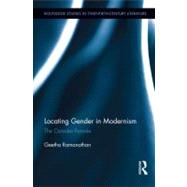- ISBN: 9780415509701 | 041550970X
- Cover: Hardcover
- Copyright: 5/9/2012
This book visits modernism within a comparative, gendered, and third-world framework, questioning current scholarly categorisations of modernism and reframing our conception of what constitutes modernist aesthetics. It describes the construction of modernist studies and argues that despite a range of interventions which suggest that philosophical and material articulations with the third world shaped modernism, an emphasis on modernist "universals" persists. Ramanathan argues that women and third-world authors have reshaped received notions of the modern and revised orthodox ideas on the modern aesthetic. Authors such as Bessie Head, Josiane Racine, T.Obinkaram Echewa, Raja Rao, Gabriel Garcia Marquez, Sembene Ousmane, Salman Rushdie, Ana Castillo, Attia Hossain, Bapsi Sidhwa, and Sahar Khalifeh, are visited in their specific cultural contexts and use some form of realism, a mode that western modernism relegates to the nineteenth century. A comparative methodology and extensive research on intersecting topics such as post-coloniality and the articulation between gender and modernist aesthetics facilitates readings of the modern in twentieth century literature that fall outside standards of western modernism. Considering the relationship between aesthetics and ideology, Ramanathan lays out a critical apparatus to enhance our understanding of the modern, thus suggesting that form is not universal, but that the history of forms, like the history of colonialism and of women, indicates very specific modalities of the modern.







